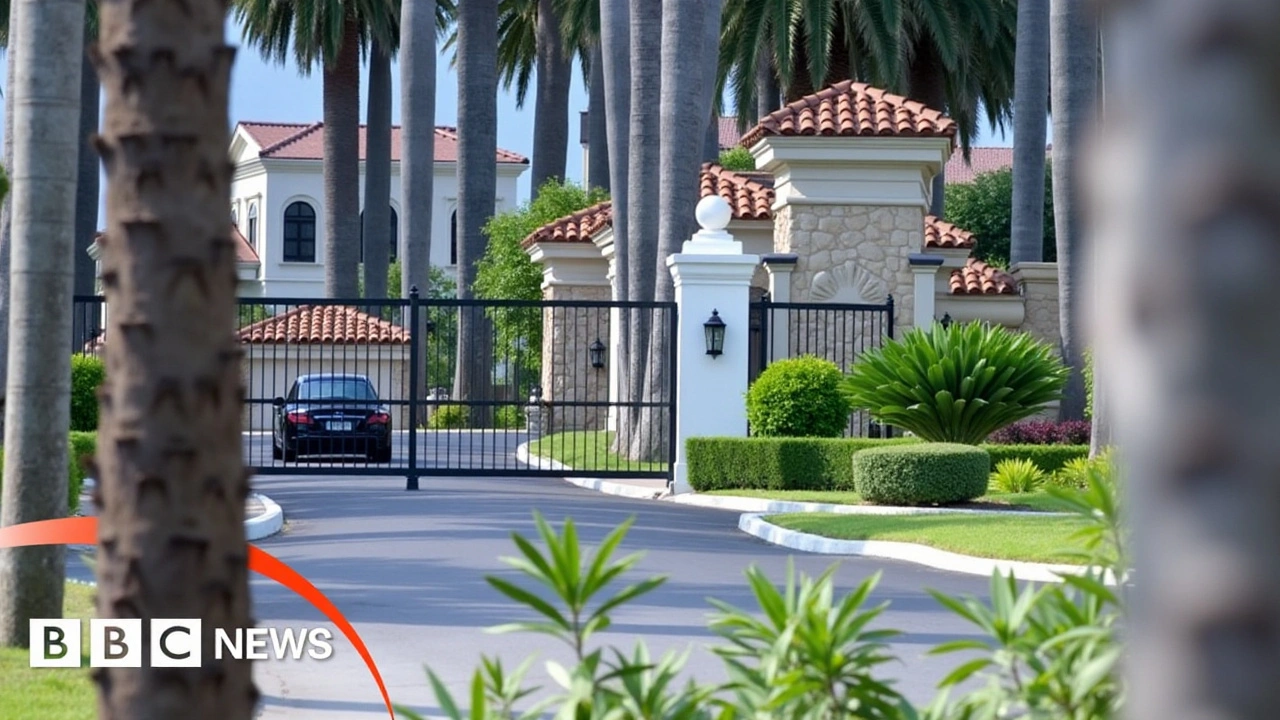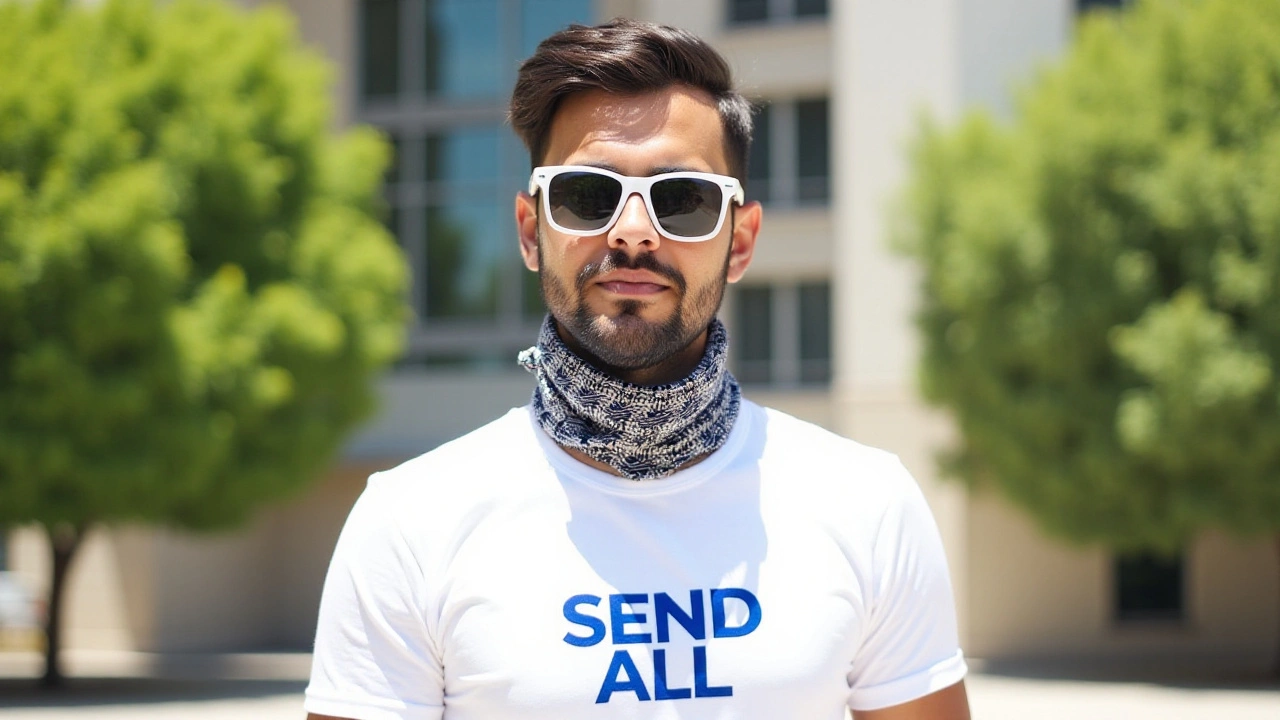
Alleged Assassination Attempt on Donald Trump: Security Concerns Heightened
In a shocking incident that has sent ripples through the political landscape, an alleged assassination attempt was made on former U.S. President Donald Trump. This attempt, the second such event in just a few months, has stirred a frenzy of media attention and prompted serious concerns over the safety protocols employed for high-profile individuals like Trump. The details of the attempt are still emerging as the investigation unfolds.
The suspect at the center of this alarming incident has been identified as Ryan Wesley Routh. Routh is known to have a somewhat mixed political ideology and has publicly expressed support for Ukraine. His background is further complicated by several legal issues, adding layers of complexity to this already perplexing narrative. Observers and investigators alike are scrambling to understand the motives behind the attempt.
The Incident Unfolds
The attempt reportedly occurred in a span of just 60 seconds, yet those few moments have had a far-reaching impact. Despite the swiftness of the situation, the ramifications have been extended, prompting questions about the existing security measures for someone like Trump. The swift nature of the incident underscores the need for vigilance and robust protection strategies. Historically, protecting ex-presidents has always been a critical task, but recent events demand an even more rigorous approach.
Political Reactions
The reaction from political leaders across the spectrum has been unanimous in its call for heightened security. Leaders from both sides of the aisle stress the need for Trump to receive the same level of protection that is afforded to the sitting president. This call has bolstered the argument for revisiting and perhaps revamping the security protocols for former heads of state. It's a stark reminder that threats do not dissipate once an individual leaves office.
One senior official commented, "The safety and well-being of our former leaders are non-negotiable. We must ensure that they are protected at all times, irrespective of political affiliations." This sentiment resonates deeply, especially amid escalating fears of targeted attacks on prominent figures.
The Role of the Secret Service
The Secret Service, the agency charged with the protection of national leaders and high-profile political figures, is now under intense scrutiny. The recurring threats against Trump have ramped up pressure on the Secret Service to enhance their protective measures. The agency is tasked with assessing and neutralizing threats, a job that has become increasingly challenging in today's volatile political climate.
According to internal sources, efforts are being made to scrutinize past incidents and implement new strategies geared towards better threat detection and prevention. Technology and intelligence are being leveraged more than ever to stay ahead of potential dangers. Nevertheless, the recent attempt serves as a stark reminder that no system is foolproof, and constant vigilance is required.
Challenges of Protecting Public Figures
Protecting high-profile individuals like Donald Trump is no simple feat. It involves a complex web of intelligence gathering, risk assessment, and on-the-ground protective measures. The task becomes even more complicated given the current polarized political environment. Threats can come from any direction and with varying motives. The latest incident involving Routh is a prime example of this unpredictable nature.
Security experts emphasize the importance of a multi-layered approach to protection. This includes everything from physical security measures such as barriers and secure transport to digital security involving cybersecurity measures to protect against hacking and data breaches.
Public and Media Response
The public reaction to the attempt has been a mix of shock and concern. Many are frightened by the realization that even a former president is not immune to such threats. Social media platforms have been abuzz with reactions ranging from outrage to calls for more stringent protective measures. The media has also played a crucial role in bringing this issue to the forefront, prompting discussions on various forums and talk shows.
This incident has also led to some introspection about the state of political discourse in the country. Many are calling for a return to civility and a reduction in the inflammatory rhetoric that often dominates political conversations. The hope is that lowering the temperature might reduce the occurrence of such dangerous incidents.
Looking Ahead
As investigations continue and more details emerge, one thing remains clear: the need for enhanced security measures is more critical than ever. The string of threats against high-profile figures like Trump is a reminder that public safety is an ongoing challenge requiring constant adaptation and vigilance.
In the months to come, it is likely that security protocols will be re-evaluated and potentially revamped. Cooperation between various security agencies, technological advancements, and public awareness will all play crucial roles in shaping a safer environment for our leaders. The goal is to ensure that they can continue their public lives with a semblance of normalcy, free from the looming shadow of danger.

Conclusion
The recent alleged assassination attempt on Donald Trump has brought several issues to light, not least among them the ongoing security challenges faced by former national leaders. It has sparked a necessary dialogue on how best to protect those who have served in the highest office of the land. As we move forward, the hope is that lessons learned from incidents like these will lead to more effective and comprehensive protective measures, ensuring the safety and well-being of all high-profile figures.